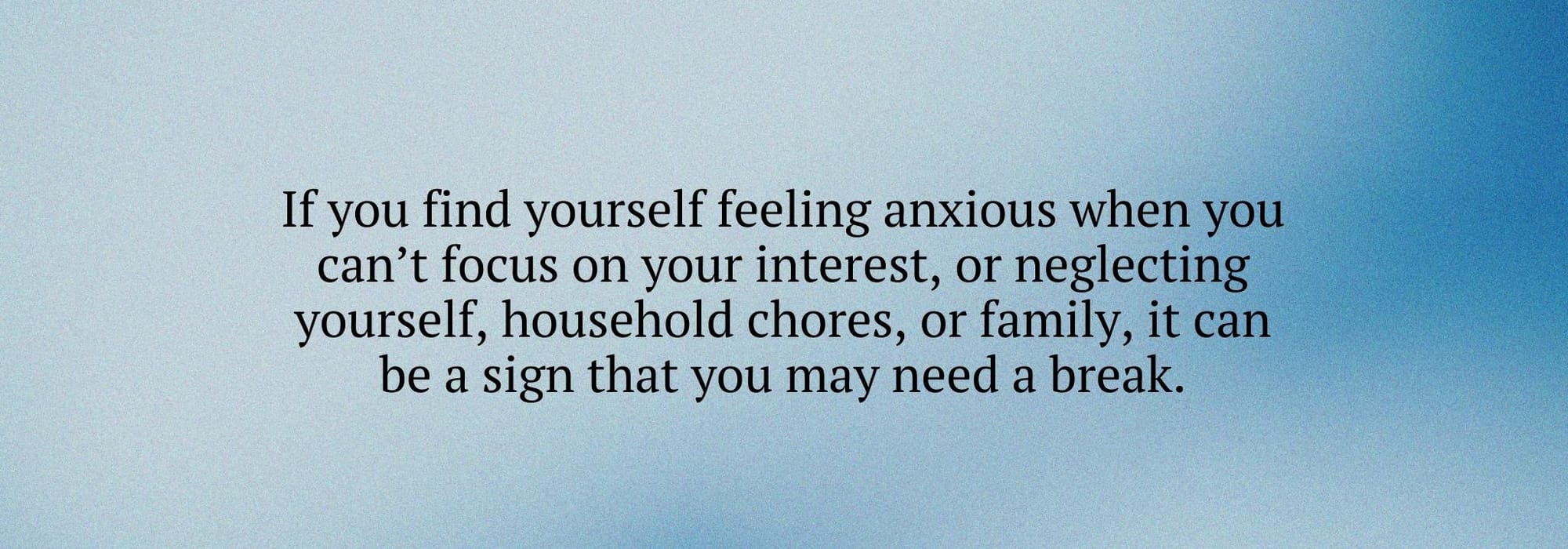Do you ever find yourself so focused on a specific activity or interest that you lose track of time? It could be a sign of hyperfixation, so here we’re highlighting the good (and the bad), along with practical tips to turn your fixation into focus
Have you ever felt so completely engrossed in something that you’ve ignored the world around you? Maybe you’ve let responsibilities, or even friends and family, fall by the wayside. This could be a sign of hyperfixation. But does it have a positive side, or is it a problem that needs to be addressed?
What is hyperfixation?
Hyperfixation refers to a state of intense interest in a certain topic or activity. This usually involves becoming absorbed in a task, activity, or subject, but can be around any number of different things – such as a specific celebrity, hobby, TV or book series, historical period, or video game. This obsession is less about a specific goal, and more about spending an excessive amount of time consumed by it.
While anyone can experience hyperfixation, it’s most common in neurodivergent people, for example, autistic people, or those with ADHD. People with anxiety, OCD, or schizophrenia can also be more likely to experience hyperfixation.
There are a few terms, for example, ‘special interests’ and ‘hyperfocus’, which are often used interchangeably with hyperfixation, but it’s important to note the distinction between these. While similar to special interests and often related, a hyperfixation is more likely to last for a shorter period of time. This could be anything from minutes to months, and may lead to someone finding out as much information about a topic as possible in a short space of time, so it becomes incredibly time and attention-consuming. Whereas a special interest may be more long-lasting, with an ongoing interest for weeks, years, or be lifelong – therefore the time investment is less intense.
A key difference with hyperfixation and a state of hyperfocus is that the latter tends to be goal-oriented (looking to achieve something in particular), and doesn’t necessarily have to be related to an area of special interest – it could be any kind of activity you have to participate in (for example a necessary DIY project, when you don’t enjoy the task).

In real-life terms, you might become hyperfixated on your special interest for a period – for example, if you idolise a certain celebrity, you may become hyperfixated on reading their latest book or consuming all media surrounding an upcoming movie release. This can happen to the point where you skip meals, ignore messages from friends, stop keeping up with household chores, or have trouble focusing on anything else.
Though some people may still feel able to focus on other things around the hyperfixation, it’s important to remember that there can be positive and negative consequences. But, what are they? And what signs should we be keeping an eye out for?
Interest or hyperfixation? How to spot the difference
Recognising when something goes beyond enjoyment to become a hyperfixation can be difficult. Some of the signs can include:
- Forgetting to do other basic tasks (e.g. eating, sleeping, showering)
- Losing track of time while engaging with a specific interest or activity
- Feeling like you are tuning out the world around you when engaging with your interest
- Being so immersed in the interest that you neglect other responsibilities (e.g. cooking, cleaning, paying bills)
- Being less aware of others or less self-aware when engaging with your interest
- Feeling out of control of your actions in relation to your interest
The pros and cons of hyperfixation
Hyperfixation can have benefits and drawbacks. Some of the former can include learning new subjects or skills more quickly, due to increased focus and interest. You may also find your performance at work or with a hobby increases due to your intense focus on that area or activity, which, for some people, can lead to a higher likelihood of success. Research suggests that some individuals who hyperfixate may be more likely to perform better on tasks than others under normal circumstances.
When channelled positively, hyperfixation can result in amazing art and creativity, lead to innovation, help with your career or academic performance, and can even create opportunities to connect with others with similar interests. In fact, many successful people have credited hyperfixation, in part, to their overall success, including Steve Jobs, the co-founder of Apple, Sir Richard Branson, business magnate and co-founder of Virgin Group, Simone Biles, Olympic gymnastics champion, and Bill Gates, co-founder of Microsoft.
However, as with anything, there can be downsides, too. Hyperfixation could lead to being distracted from other important tasks, or losing track entirely of the outside world. If you find yourself feeling anxious when you can’t focus on your interest, neglecting yourself, household chores, or family, or feeling more stressed than relaxed by your interest, it can be a sign that you may need a break or to try new ways of balancing your interest.
It’s important to remember that forbidding yourself from activities or indulging in interests completely often isn’t helpful. Instead, try to find ways to harness that interest, and make it work around the rest of your home, work, or academic life.
Practical tips to manage hyperfixation
If you find yourself hyperfixating, there are a number of different, practical ways you can try to manage things to help balance your time and energy, without stopping your interest altogether.
Set goals.
Giving yourself a set time limit or other specific goals, e.g. to read no more than 20 pages of your latest book, or to spend no more than an hour before bed on a set hobby, can allow you to enjoy yourself without getting lost in the activity.
Schedule breaks.
Having regular breaks between when you indulge in your hyperfixation can help you to feel rested and recharged, as well as breaking up your focus. This can help you to get other things done that you might otherwise forget.
Explore new hobbies.
Having a more diverse range of hobbies and interests can help prevent or divert you from getting too absorbed by a single activity.

Use time management tools and techniques.
These can help in staying organised and prioritising tasks that may otherwise fall by the wayside. You might want to try setting alarms on your phone, using management apps, or trying the Pomodoro technique (taking a five-minute break for every 25 minutes of work or focus, followed by a longer 15 or 30-minute break once a task has been completed).
Expand your support system.
Connecting with friends, family, or others with shared experiences can help you to be more open when you feel like you may be struggling, to recognise signs and feel comfortable reaching out for help if needed.
Practise mindfulness.
Mindfulness can help to increase your awareness of and connection to the world around you, enabling you to feel more present in the moment and less likely to become unhealthily absorbed by a topic.
Working with a therapist.
If you find yourself feeling stressed or your daily life being interrupted due to hyperfixation, talking with someone can be a big help. A therapist can help you to better understand and manage thought patterns and behaviours that might be unhealthy, as well as enable you to recognise and address root causes that might be leading to your hyperfixation, such as anxiety or depression.


Comments